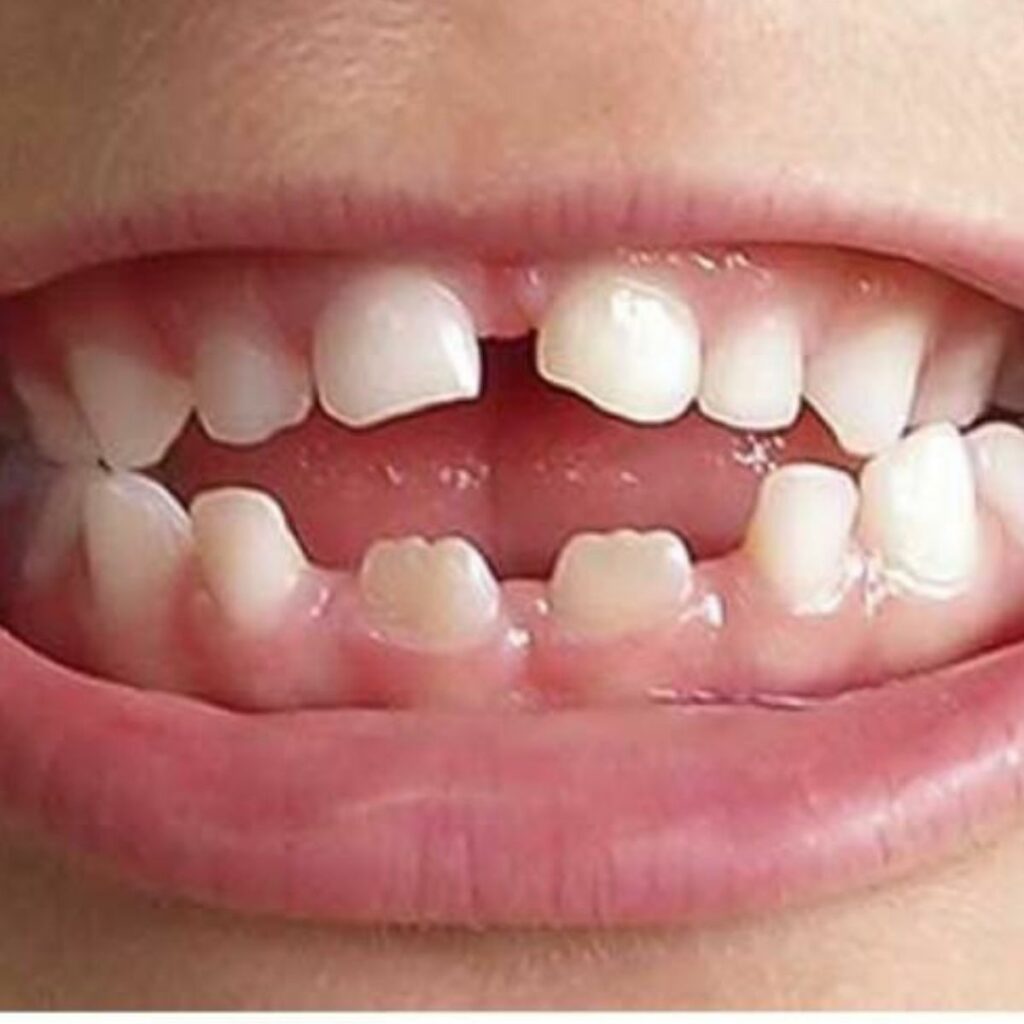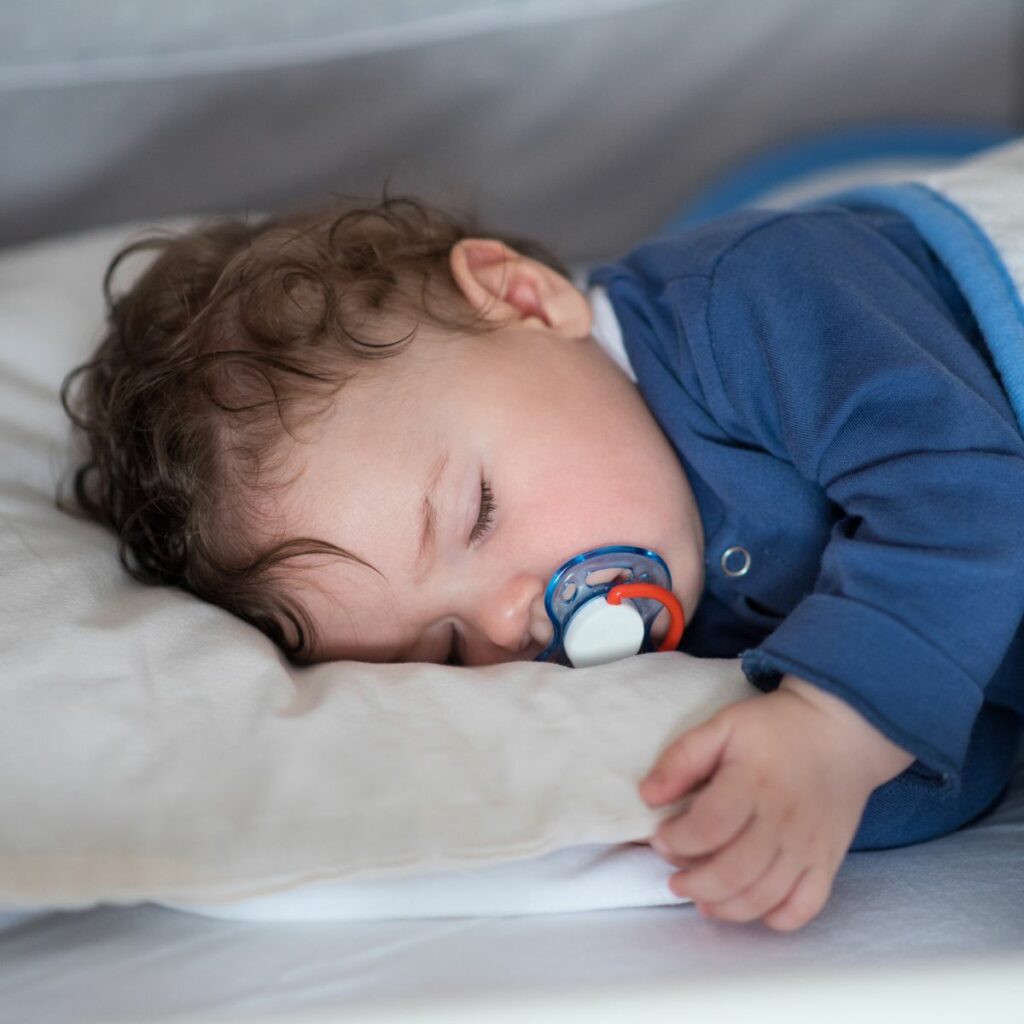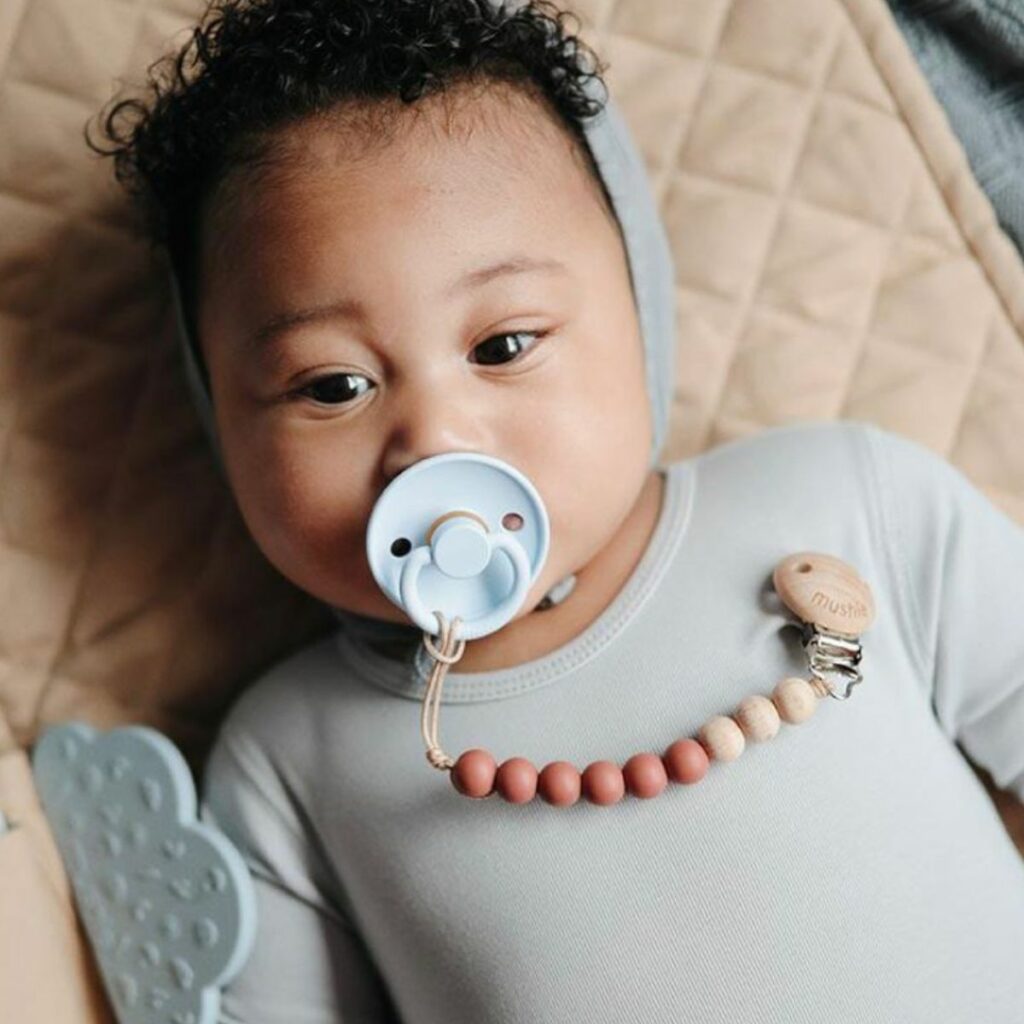Call it a pacifier, soother, or dummy; these small wonders often become more than just comforting tools. They evolve into what I like to call a “rescue” tool. Parents and children affectionately give them nicknames, as they sometimes develop into long-term companions.
2 common questions that often linger in the minds of parents are: when does a pacifier become more than just a comforting tool? Will a pacifier harm my baby’s teeth?
Just like the First Dental Visit, there’s a lot to consider when it comes to pacifiers. In this blog, I will guide you through three key reasons why your child might develop ‘dummy teeth’ and how to prevent them.
Let’s dive in!
But first, let’s understand the innate needs of babies
Babies are born with a strong innate urge to suck. It is one of the infant’s primary calming mechanisms which is essential for their development and comfort. Sucking helps them through their first weeks and months of life.
This instinct ensures reflexive sucking at the breast, on fingers, or a pacifier as soon as they touch the mouth. For infants who breastfeed, this need is often met during nursing sessions. However, for babies who don’t breastfeed, a pacifier can serve as a valuable tool to fulfill their need for non-nutritive sucking.
What are the benefits of a pacifier?
- Pacifiers play a role in reducing the risk of sudden infant death syndrome (SIDS).
- Pacifiers are often used to soothe fussy or irritable infants. The act of sucking on a pacifier can provide comfort and a sense of security, helping babies self-regulate their emotions.
- Many parents find that pacifiers can help their babies fall asleep more easily and improve the quality of their sleep.
- Pacifiers are also great for overstimulated babies in social settings.
- Pacifiers can give mamas a break! Giving a pacifier to your baby can allow a drained mum to get her hot long shower, a cup of coffee, a much needed conversation with a friend, or even a moment of calm to regain her mental wellbeing…
But when does a pacifier become damaging for a child?
In my more than 15 years of practice, I’ve identified 3 key reasons explaining how pacifiers can potentially damage your baby’s teeth and why they may be linked to the development of your child’s ‘dummy teeth’.

Reason 1: Prolonged and Excessive Pacifier Use
Pacifier overuse, especially in older toddlers, can lead to an abnormal tongue position in the mouth, tooth misalignment, and improper jaw development. If you offer pacifiers all day and night, this can result in damages in the jaw and teeth.

Reason 2: Choosing the Wrong Pacifier Shape
Selecting the correct pacifier is crucial. Heavy pacifiers weighing more than 10 grams or bulky, hard silicone ones that partially block the nose can negatively affect jaw development.

Reason 3: Strong Intensity of Sucking
The intensity of sucking also plays a big role in developing “dummy teeth.” Some babies have stronger sucking reflexes than others, creating excessive negative pressure in their mouths. Submitting their jaw muscles to this power repetitively and for long periods is definitely creating damage there.
If your baby is sucking on a pacifier, discuss with your pediatric dentist which is the best pacifier for your baby to prevent dummy teeth . And book your child’s first oral health check-up at ONE, or before their first tooth emerges. Your pediatric dentist can help you prevent any negative side effects of pacifier use.

